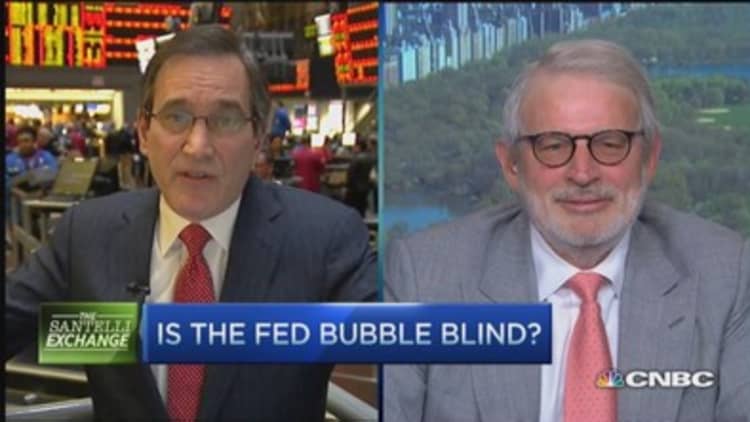A top U.S. Federal Reserve official on Monday suggested stress tests and certain capital requirements to contain the risks within the non-bank lending sector, while acknowledging there is little the central bank can do to impose such restrictions.
Fed Vice Chairman Stanley Fischer offered a framework to more tightly regulate the lending activities of hedge funds, mutual funds and other non-bank entities - often referred to as shadow banks - though he was careful to show that he was offering suggestions and not potential central bank rules.
The Fed has ramped up the central bank's focus on its crisis-prevention abilities, recognizing the regulatory failures that led to the 2007-09 financial crisis.
While Fischer has often spoken about the need to get ahead of the next meltdown, Monday was the first time since he joined the Fed last year that he offered specific steps to make shadow lenders less dangerous.

"It is widely understood that any regulation of non-banks should fit their activities and the vulnerabilities they pose, which implies that not every non-bank financial institution or activity necessarily needs to be regulated," Fischer said in prepared remarks at an Atlanta Federal Reserve Bank event in Stone Mountain, Georgia.
The Fed regulates banks and systemically important financial institutions, but it does not have oversight of non-bank lending, even though the sector plays a massive role for U.S. borrowers.
The Financial Stability Board, an international regulator, said in a November report that U.S. financial assets held by non-banks reached $25.2 trillion in 2013, exceeding pre-crisis levels.
Read MoreFed dramaflips old Wall Street adage: Strategist
Fischer on Monday mentioned some measures the Fed and other regulators have taken to reduce risk in this sector, and offered other suggestions as well, that focus on solvency, liquidity and constant monitoring of lending data.
"To promote solvency, one could impose ratio-type capital requirements, such as leverage-ratio requirements or risk-based requirements," Fischer offered, adding that shadow banks should also consider conducting a stress test on themselves.
"In the Fed's case, it has chosen to impose all of these requirements on banks, but these requirements cannot simply be applied, as is, to non-banks."
Fischer once again in his remarks singled out money market funds, a $2.7 trillion sector that Fed officials have said could see disruptions as the Fed begins to raise interest rates for the first time in a decade.
Fischer said "only time will tell" if reforms aimed at the money market industry succeed in preventing runs on the institutions.

